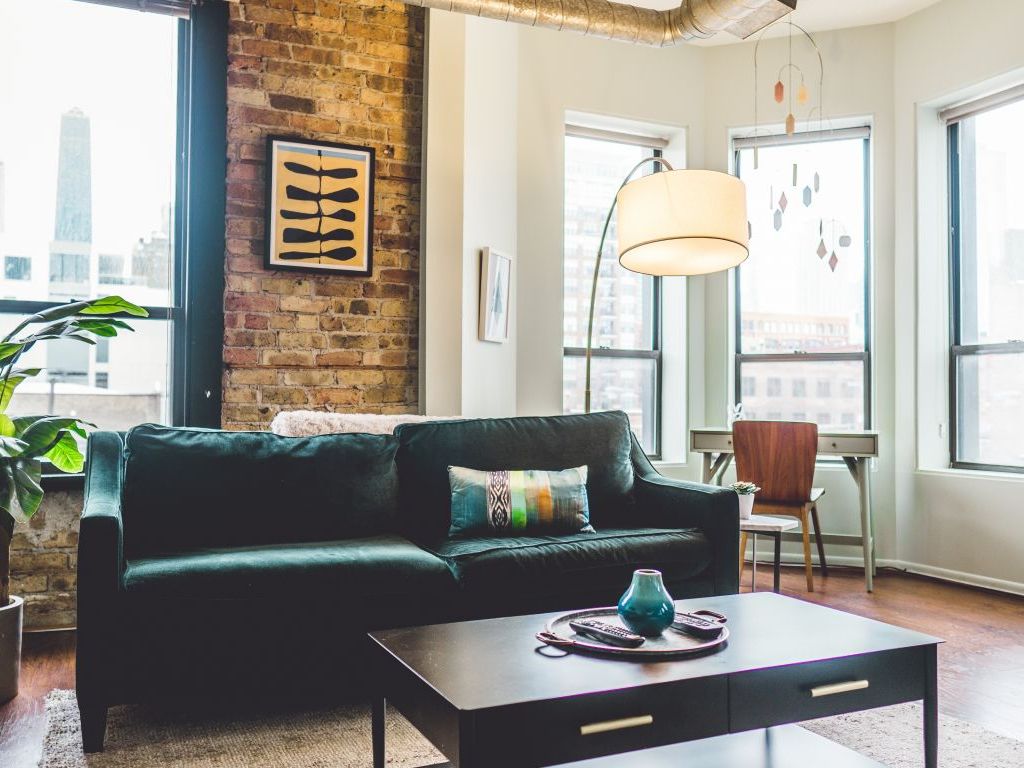Rebec 2024: Belgrade looking at a “boom” in the construction of student accommodation projects – Social housing as an obligation
Section 106 Agreement in the United Kingdom enables negotiations between investors and local authorities for improving the community through the obligations of the investor, including the construction of green spaces, social housing and infrastructure. While Vienna and Prague use similar models for social housing and development, Belgrade is recording a growth of the interest in student accommodation and co-living space projects, providing affordable housing options to young people and professionals, is the conclusion of the panel “Social Housing & Student Accommodations”, held within the REBEC 2024 Conference.
– I was born and raised in the United Kingdom, and I’ve been in Belgrade too since two years ago. In London, they often ask me about the corruption in Serbia and Eastern Europe in general. It is assumed that the local authorities are saying: “If we give you the urban planning permits for the project, we want you to do so and so.” And things, in fact, work this way in the United Kingdom. The British have turned this principle into something effective and they call it the Section 106 Agreement. That is, in fact, the key instrument for negotiations between investors and local authorities. It can cover different things, among others, the now very popular “green spaces”. For example, the investor can get the permits, but they will be obliged to make a “green roof”. It can also encompass the construction of education institutions, the improvement of the road infrastructure, public transport… – explained Petar Orlic, in charge of business development at the company NKO, which operates in London and Belgrade.
Section 106 Agreement is a legal instrument which is used in urban planning in the United Kingdom. This agreement is signed between the local authorities and the investor as part of the process of the issuing of the building permits. Its aim is to ensure that certain negative effects of new development are mitigated and to improve the local community. Section 106 agreements are mostly used for financial contributions, securing social housing, preserving the green areas. These agreements are legally binding and are implemented in order to ensure that development projects are in line with the wider interests of the community and the local environment.
– We’re talking serious money here. However, they insist the most on affordable and social housing. Around 20% of the projects have to belong to affordable housing. In fact, affordable housing is a necessity in every city. In London, by the way, there is not enough room for housing, and that especially pertains to affordable housing. Section 106 Agreement is very strict. I am not sure that there is anything similar in Belgrade, but if there were, it would be a positive step forward. – says Orlic.
State and city authorities have to oblige to social housing and create suitable instruments, believes Sne Veselinovic, CEO at Architektin Sne Veselinovic ZT GmbH from Vienna.
– The authorities in Vienna use zoning and development plans for this purpose. This is important so that the general good would be secured. Social housing was incorporated in the zoning and the plans of the development of Vienna five years ago. In the new projects, the percentage of social apartments is very high. Another instrument are agreements on urban development which pertain to new projects. In Vienna, there are two types of social housing, apartments managed by the city and those built by private investors – explains Veselinovic.
In Prague, there is still nothing like a required percentage of affordable housing, says Viktorie Souckova, the managing director at the Czech company Bogle Architects.
– The reason is maybe that the rents are still not as high as in, say, Vienna or London, but the investors have the obligation to contribute to the community through the construction of schools or infrastructure. In the Czech Republic, that is, Czechoslovakia, most apartments were state-owned, and then they were privatized later. However, there is still a high number of state-apartments for which the rents are lower. According to unofficial data, 2.5 million people live in Prague. We have to build more residential spaces, because we need them. Although there’s plenty of construction activity – it’s still not enough – Souckova pointed out.
What about quality – Is it better to build another 10 housing units with smaller floor areas, or have luxury, but only for a few?
Flexibility is always important, believes Viktorie Souckova.
– It depends on what’s being built. If it is for private users, it is better to build smaller units, which can potentially be combined – flexibility is always important. Also, when it comes to quality, we need to talk about the materials. In the Czech Republic, we haven’t progressed much past the concrete. We are still building in a pretty traditional manner. But when it comes to floor areas, most apartments have 45 to 55 m2, which is not that small, compared to London, for example – says Souckova.
Petar Orlic points out that, in London, quality comes first.
– In London, they insist on quality. After the fire and the tragedy in 2017 at the Grenfell Tower, which served for social housing, when plenty of people lost their lives, a lot of care is taken to improve the standards, so that nothing similar would happen again. It has become a political question – says Orlic.
According to Sne Veselinovic, it is precisely clear instruments that can and must ensure quality.
– I am convinced that social housing can and should be at a high level. Therefore, there have to be clear instruments. The Viennese model is good, because it ensures affordable housing for future generations. In Vienna, social housing is important for around 60% of the population – said Veselinovic.
The co-living housing concept for young people, professionals and digital nomads – Modern-day roommates
Co-living is a housing concept which entails living together and sharing the space between the tenants, often in urban environments. This concept is becoming increasingly popular worldwide, especially among young people, professionals and digital nomads. Co-living facilities usually offer private rooms or apartments, whereas shared spaces such as kitchens, living rooms, working spaces and sometimes even gyms and recreational spaces are available to everybody for shared use.
– Co-living is very popular in London, due to its affordability. Real estate is very expensive, and young people often don’t have enough money to even participate. That is why co-living spaces are created, with small rooms and shared spaces with kitchens, a gym, a movie theater – explains Orlic.
The way of life is changing, and young people want to leave their parents’ homes, so there is a great need for investing in co-living spaces, believes Viktorie Souckova.
– When I studied, I lived with my parents in Prague, and people who came from other cities lived in state-owned student homes. However, the way of life is changing. Young generations want to leave their parents’ homes. Co-living is affordable, but it also has a social dimension. When young people come to an unfamiliar city, co-living is also a way for them to meet friends, colleagues, find partners. Prague is very attractive to foreign students as well, and five years ago, investors started buying old buildings and turning them into co-living spaces and student accommodations. There is still a great need for that – pointed out Souckova.
In Vienna, there are new projects, but they are not affordable to most students, says Sne Veselinovic.
– State-owned student homes are still more affordable, and sometimes students rent apartments in which several of them live together – says Veselinovic.
Student accommodation in Belgrade looking at rapid development
Numerous investors are interested in investing in student accommodation projects in Belgrade, says Petar Orlic.
– I have had many clients who develop student accommodation projects in London and who ask me about Belgrade. Three things attract them here. Number one, there are plenty of students in Belgrade, and a higher number of foreign students is expected in the coming years. So, there is definitely a need. Number two, the costs of development and construction are lower, and number three, the rents are not bad – says Orlic.
He adds that such projects must develop through a synergy of the authorities and the investors.
– I expect a great boom in Belgrade in the next few years, I believe that we will see more and more such projects – concluded Orlic.
I. Zikic
– I was born and raised in the United Kingdom, and I’ve been in Belgrade too since two years ago. In London, they often ask me about the corruption in Serbia and Eastern Europe in general. It is assumed that the local authorities are saying: “If we give you the urban planning permits for the project, we want you to do so and so.” And things, in fact, work this way in the United Kingdom. The British have turned this principle into something effective and they call it the Section 106 Agreement. That is, in fact, the key instrument for negotiations between investors and local authorities. It can cover different things, among others, the now very popular “green spaces”. For example, the investor can get the permits, but they will be obliged to make a “green roof”. It can also encompass the construction of education institutions, the improvement of the road infrastructure, public transport… – explained Petar Orlic, in charge of business development at the company NKO, which operates in London and Belgrade.
Section 106 Agreement is a legal instrument which is used in urban planning in the United Kingdom. This agreement is signed between the local authorities and the investor as part of the process of the issuing of the building permits. Its aim is to ensure that certain negative effects of new development are mitigated and to improve the local community. Section 106 agreements are mostly used for financial contributions, securing social housing, preserving the green areas. These agreements are legally binding and are implemented in order to ensure that development projects are in line with the wider interests of the community and the local environment.
– We’re talking serious money here. However, they insist the most on affordable and social housing. Around 20% of the projects have to belong to affordable housing. In fact, affordable housing is a necessity in every city. In London, by the way, there is not enough room for housing, and that especially pertains to affordable housing. Section 106 Agreement is very strict. I am not sure that there is anything similar in Belgrade, but if there were, it would be a positive step forward. – says Orlic.
State and city authorities have to oblige to social housing and create suitable instruments, believes Sne Veselinovic, CEO at Architektin Sne Veselinovic ZT GmbH from Vienna.
– The authorities in Vienna use zoning and development plans for this purpose. This is important so that the general good would be secured. Social housing was incorporated in the zoning and the plans of the development of Vienna five years ago. In the new projects, the percentage of social apartments is very high. Another instrument are agreements on urban development which pertain to new projects. In Vienna, there are two types of social housing, apartments managed by the city and those built by private investors – explains Veselinovic.
In Prague, there is still nothing like a required percentage of affordable housing, says Viktorie Souckova, the managing director at the Czech company Bogle Architects.
– The reason is maybe that the rents are still not as high as in, say, Vienna or London, but the investors have the obligation to contribute to the community through the construction of schools or infrastructure. In the Czech Republic, that is, Czechoslovakia, most apartments were state-owned, and then they were privatized later. However, there is still a high number of state-apartments for which the rents are lower. According to unofficial data, 2.5 million people live in Prague. We have to build more residential spaces, because we need them. Although there’s plenty of construction activity – it’s still not enough – Souckova pointed out.
What about quality – Is it better to build another 10 housing units with smaller floor areas, or have luxury, but only for a few?
Flexibility is always important, believes Viktorie Souckova.
– It depends on what’s being built. If it is for private users, it is better to build smaller units, which can potentially be combined – flexibility is always important. Also, when it comes to quality, we need to talk about the materials. In the Czech Republic, we haven’t progressed much past the concrete. We are still building in a pretty traditional manner. But when it comes to floor areas, most apartments have 45 to 55 m2, which is not that small, compared to London, for example – says Souckova.
Petar Orlic points out that, in London, quality comes first.
– In London, they insist on quality. After the fire and the tragedy in 2017 at the Grenfell Tower, which served for social housing, when plenty of people lost their lives, a lot of care is taken to improve the standards, so that nothing similar would happen again. It has become a political question – says Orlic.
According to Sne Veselinovic, it is precisely clear instruments that can and must ensure quality.
– I am convinced that social housing can and should be at a high level. Therefore, there have to be clear instruments. The Viennese model is good, because it ensures affordable housing for future generations. In Vienna, social housing is important for around 60% of the population – said Veselinovic.
The co-living housing concept for young people, professionals and digital nomads – Modern-day roommates
Co-living is a housing concept which entails living together and sharing the space between the tenants, often in urban environments. This concept is becoming increasingly popular worldwide, especially among young people, professionals and digital nomads. Co-living facilities usually offer private rooms or apartments, whereas shared spaces such as kitchens, living rooms, working spaces and sometimes even gyms and recreational spaces are available to everybody for shared use.
– Co-living is very popular in London, due to its affordability. Real estate is very expensive, and young people often don’t have enough money to even participate. That is why co-living spaces are created, with small rooms and shared spaces with kitchens, a gym, a movie theater – explains Orlic.
The way of life is changing, and young people want to leave their parents’ homes, so there is a great need for investing in co-living spaces, believes Viktorie Souckova.
– When I studied, I lived with my parents in Prague, and people who came from other cities lived in state-owned student homes. However, the way of life is changing. Young generations want to leave their parents’ homes. Co-living is affordable, but it also has a social dimension. When young people come to an unfamiliar city, co-living is also a way for them to meet friends, colleagues, find partners. Prague is very attractive to foreign students as well, and five years ago, investors started buying old buildings and turning them into co-living spaces and student accommodations. There is still a great need for that – pointed out Souckova.
In Vienna, there are new projects, but they are not affordable to most students, says Sne Veselinovic.
– State-owned student homes are still more affordable, and sometimes students rent apartments in which several of them live together – says Veselinovic.
Student accommodation in Belgrade looking at rapid development
Numerous investors are interested in investing in student accommodation projects in Belgrade, says Petar Orlic.
– I have had many clients who develop student accommodation projects in London and who ask me about Belgrade. Three things attract them here. Number one, there are plenty of students in Belgrade, and a higher number of foreign students is expected in the coming years. So, there is definitely a need. Number two, the costs of development and construction are lower, and number three, the rents are not bad – says Orlic.
He adds that such projects must develop through a synergy of the authorities and the investors.
– I expect a great boom in Belgrade in the next few years, I believe that we will see more and more such projects – concluded Orlic.
I. Zikic
Only logged-in users can comment.


 Izdanje Srbija
Izdanje Srbija Serbia Edition
Serbia Edition Serbische Ausgabe
Serbische Ausgabe Izdanje BiH
Izdanje BiH Izdanje Crna Gora
Izdanje Crna Gora














 LinkedIn
LinkedIn Email
Email Copy link
Copy link


